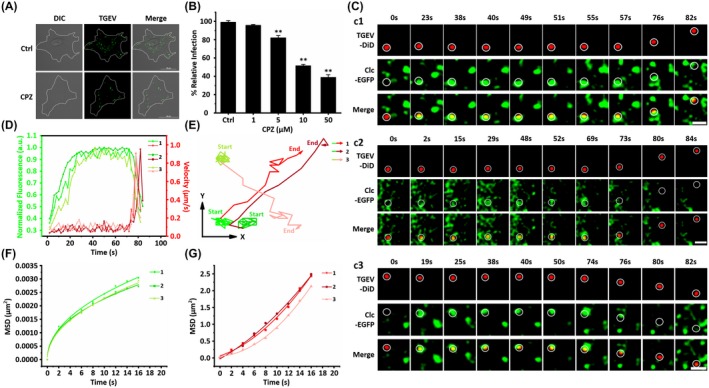Figure 2.

Live cell imaging of the TGEV internalization via clathrin‐mediated endocytosis. A, Representative immunofluorescence images of TGEVs in control and CPZ treated cells. The ST cells were treated or untreated with 10 μM CPZ for 30 min and subsequently inoculated with TGEVs for 2 h, and then the ST cells were fixed and the infected TGEVs were stained with the anti‐TGEV primary antibody and the fluorescent secondary antibody. Scale bar, 20 μm. B, Effects of CPZ with different concentrations on TGEV infection. The ST cells were treated or untreated with the indicated concentrations of CPZ for 30 min and inoculated with TGEVs for 2 h, subsequently, the relative TGEV levels were measured by qPCR. Data present as mean ± SD from three independent experiments. **P < .01 by t test. C, Time‐lapse images of the internalization of three TGEVs via clathrin‐mediated endocytosis shown in Videos S1‐S3. Circles indicate the positions of the TGEVs in each panel. Scale bar, 2 μm. D, Fluorescence intensity curves of clathrin at the site of virus and velocity curves of viral diffusion corresponding to (C). E, Trajectories of viral diffusion corresponding to (C). F and G, MSD vs time plots of viral movement. The colors are in accordance with those in (E)
